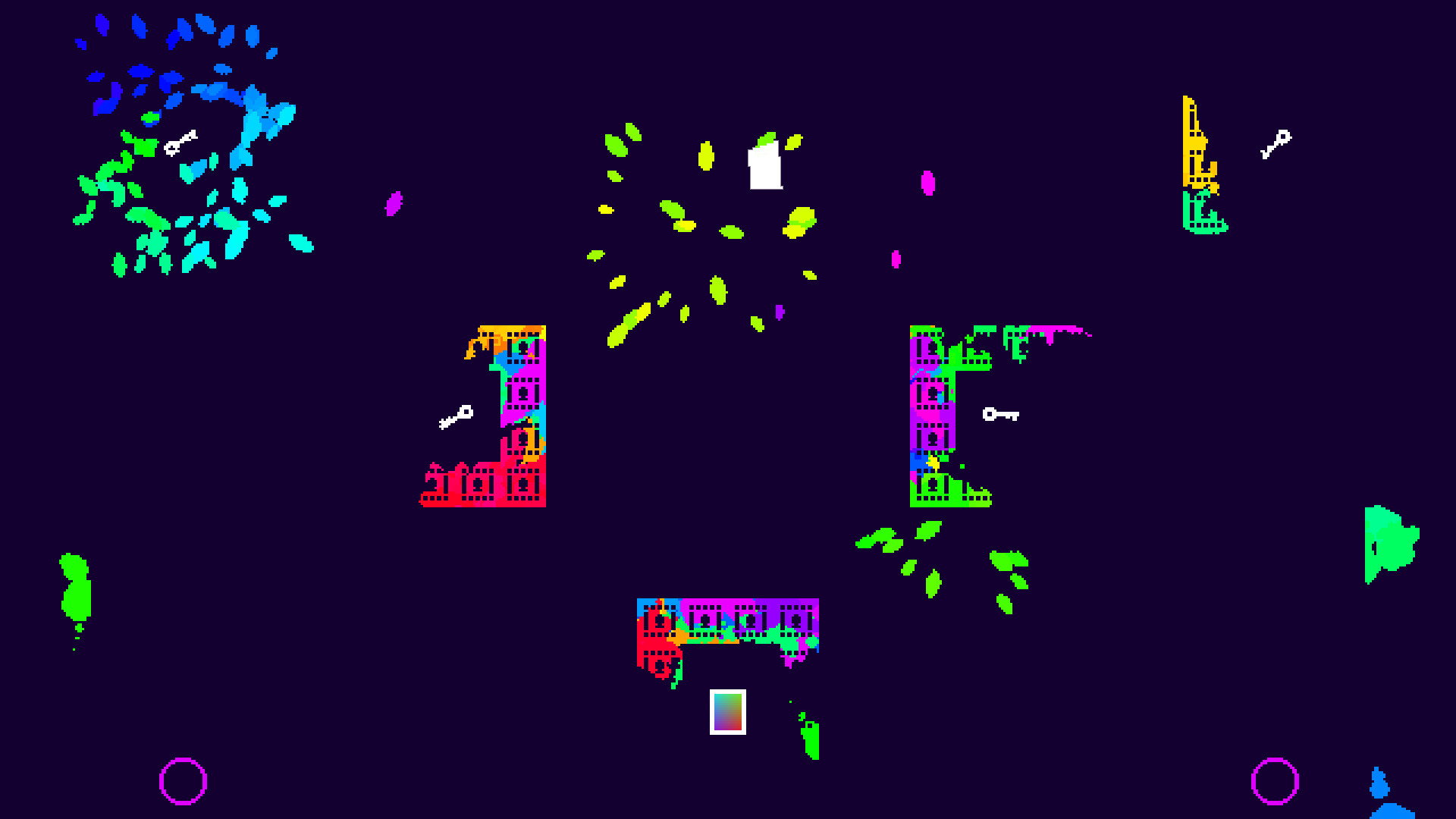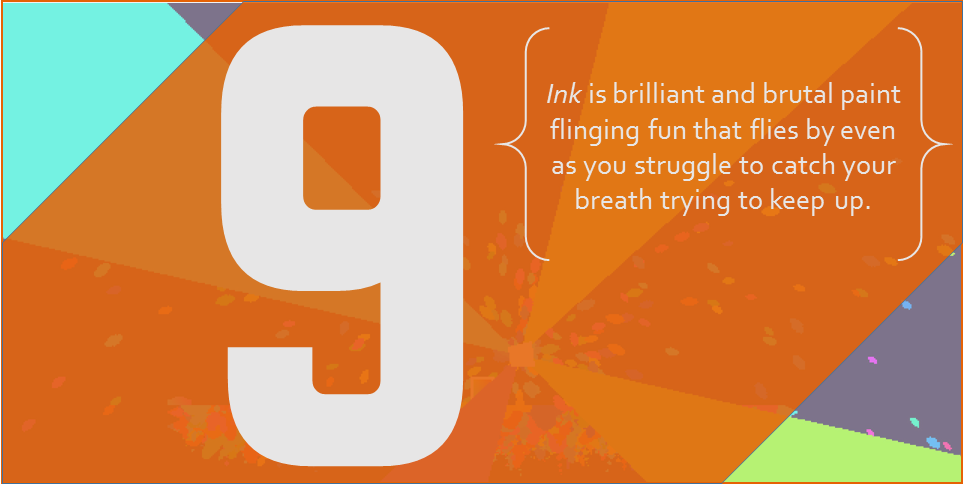Ink Is Messy Platforming Bliss
For a long portion of last year every time I’d catch a glimpse of Zack Bell’s Ink I had to take a moment to pause and check that I wasn’t in fact looking at a more frantic DAGDROM. Perhaps it’s due to having stumbled upon them both at nearly the same time (Ink may very well have nudged DAGDROM off the front page of itch.io only a week or two after I first played it), each sporting their own squiggly paint-flinging aesthetic, but on the surface I couldn’t help but find the two games near indistinguishable from one another. Which probably says more to my tendency toward snap judgements than it does to either game in question, as beyond a similar fascination with the messy possibility of flinging paint all over a level Ink and DAGDROM couldn’t be more dissimilar. In far more ways that matter Ink actually shares a greater kinship with the brutal platforming classic, Super Meat Boy. You could almost speculate that Ink’s explosive paint mechanic was inspired directly by Super Meat Boy’s similar blood splatter effect, but where that served as little more than a macabre monument to your failures Ink turns it into a brilliant platforming meta game, dropping you into levels which are near entirely invisible and requiring you blast paint everywhere to reveal your way through. It’s a bit like the painting mechanics of the charming and underappreciated de Blob, albeit with fewer analogies to totalitarian governments and more jello squares finding their way through the darkness.

Ink’s concept really is dead simple in principle, but there is something wonderfully delightful about a game that is entirely about making as big of a mess of a given level as you can by means of so many gooey psychedelic colors. Ink’s look is minimal in the sense that it’s made up of little more than the most rudimentary of geometric shapes, but there is a liveliness to it all that is infectiously energetic. The way the little square protagonist jiggles with every move feels like far more than a flat stand-in for an actual character, overflowing with a joyful abundance of energy that is all but demanding you keep moving, always keep moving. Ink is often so understated that it verges upon ambivalence, but the little touches found in the way characters move or the way paint arcs just so give the game an enthusiastic personality, and look impeccable to boot.
What’s most special about Ink though is how it uses its visual flair in tandem with its level design, intertwining the two to form a mechanical and graphical synergy. Paint is used to reveal hidden platforms, but it also serves as a helping hand when you begin to fail repeatedly, each death causing you to explode in a shower of paint revealing more of the level and making navigating it that much easier. It’s a small touch but it’s one of the most clever answers to the problem of static platformer difficulty I’ve seen without eating away at the challenge enough to cause it to feel cheap. Ink is ruthless in its attempts to keep you from completing a level, but it always balances its difficulty by giving you enough room to breathe, to find your way through levels and suss out how best to approach them before murdering your square with wild abandon. I still found myself exhausted and out of breath upon finally making it through to the end, but it’s a testament to Ink’s design that it never felt like as if that end was beyond my ability, no matter how many dozens of times I might die to the same bloody turret. Or spiked wall. Or bottomless pit of my existential despair.
It probably helped that I was able to complete Ink in just over a very speedy hour, but this brevity didn’t come at the price of substance. Ink might be short (by many people’s judgement, at least), but it feels very full, lasting just long enough to exhaust its clever hook without diluting it with filler. It’s all remarkably well considered, with even the levels that are near mirror images of one another feeling essential and just as creative as their original counterpart.
Final Word
Though it might have taken me too long to recognize Ink as its own game, it was a distinction worth making as Zack Bell’s mess obsessed creation is among the most enjoyable platformers I’ve played in quite some time. It’s as charming as it is infuriating, but it never dangles the carrot too far out of reach that you lose sight of it completely. Though it is likely hard to lose sight of a metaphorical carrot covered in as many different colors of florescent paint as this one surely is.

Ink was developed by Zack Bell Games and is available on PC, Mac, and Linux.

